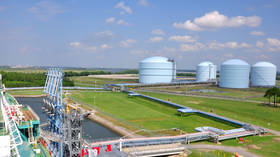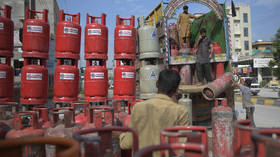EU boosts LNG imports – data

The EU has already bought more liquefied natural gas (LNG) since the start of the year than during the entirety of 2021, the news outlet RBK reported on Thursday, citing the research firm Kpler.
According to Kpler’s estimates, LNG shipments to the 27 EU member countries totaled 105 billion cubic meters (bcm) in January-October 2022. This figure is already much higher than last year’s total of 78.1 bcm. It also exceeds the purchases made by China, formerly the leading buyer of LNG. In the first ten months of 2022, Beijing imported 69.9 bcm of the fuel.
The increase in the bloc’s LNG purchases comes as Brussels is struggling to make up for the slump in natural gas deliveries from Russia. Supplies from the country dropped amid Western sanctions, technical problems and the sabotage in September of the Nord Stream 1 pipeline, which forced it to be completely shut down.
In 2021, Russia accounted for about 45% of the EU’s gas imports. According to the International Energy Agency, last year Russia supplied 155 bcm to the bloc, while this year Russian gas imports are expected to drop to a little over a third of that (around 60 bcm).
According to Laura Page, a senior LNG analyst at Kpler, by the end of the year the EU will have bought about 123 bcm of the fuel. Sergey Kapitonov, an analyst at Skoltech’s Energy Transition and ESG Project Center, estimates that while last year LNG accounted for only 18% of gas consumption in the EU, its share will almost surely double to 35% this year.
However, replacing Russian pipeline gas supplies with LNG will cost the region a pretty penny, analysts warn. Unlike pipeline gas, which is usually supplied under long-term contracts, LNG is more often purchased on the spot market, and its cost tends to be many times higher.
Meanwhile, increased purchases by the EU have been making it difficult for developing countries to buy LNG, as they are now forced to compete on price with wealthier nations.
“Energy security concerns in Europe are driving energy poverty in the emerging world… Europe is sucking gas away from other countries whatever the cost,” Credit Suisse analyst Saul Kavonic told Bloomberg this week.
For more stories on economy & finance visit RT's business section













